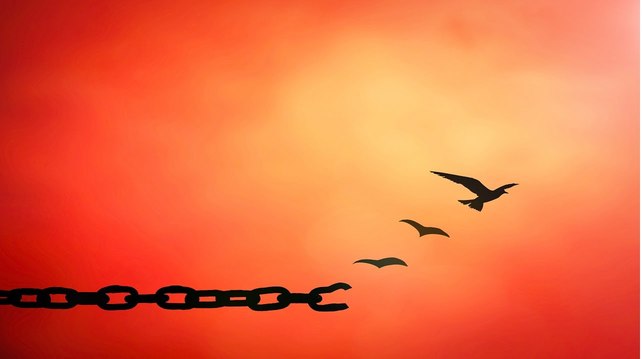
This article summarizes what I learnt at a one-day workshop on forgiveness by Fred Luskin and Rick Hanson. The workshop was held at Spirit Rock Meditation Center, which is about 20 miles north of San Francisco, on 15 August 2009.
Fred Luskin is the Director of Stanford Forgiveness Projects. His projects have helped especially those who lost their loved ones through war or crime. He wrote the book Forgive for Good (240 pages, 2003).
Rick Hanson is the founder of WiseBrain.org. He is a clinical psychologist who has been meditating regularly since 1974. He wrote the books Buddha's Brain (270 pages, 2009) and Hardwiring Happiness (304 pages, 2016), both of which receive rave reviews on Amazon.
According to Fred Luskin, it's time to forgive if the following sequence of events has happened (key phrases are underlined):
Step 1: Somebody did or said something that you took personally and felt hurt.
Step 2: You blamed the person for causing you harm knowingly or unknowingly.
Step 3: You built a grievance story, perceived yourself as a victim and were full of self pity.
By carrying grievances within, you are not at peace and you cannot enjoy your life. Some people harbor grievances for a long time, even after the persons who hurt them are long dead or behind bars. Forgiveness is helpful in cleansing ourselves of such grievances. It allows us to move on in life and have fun. Post forgiveness, past events that caused us grief no longer bother us.
Is forgiveness for everybody? No. According to Fred, there is a time for forgiveness. Soon after a traumatic event, a person is in shock. For example, a dad whose son was shot by a stray bullet a few days ago is unlikely to be in a mood for forgiveness. However, after a few months, he will.
Forgiveness is not the same as forgetting. When you forgive somebody, you shall continue to retain memories of hurtful events. In contrast, forgetting amounts to erasure or suppression of memories, which is unhealthy.
Forgiveness is not the same as condoning bad behavior or choosing to say that words or actions that hurt you were okay or acceptable when they were not.
Forgiveness is not the same as reconciliation with the person who hurt you.
Forgiveness is not the same as pardoning or absolving somebody of a crime.
Forgiveness should not be confused with learned helplessness, a technical term used in psychology.
If you forgive a person by telling them that you are forgiving them, you are also ascribing fault to them. Now, the other person may have hurt you knowingly or unknowingly. And it is a rare individual who acknowledges his or her own faults. So if you tell somebody that you are forgiving them, your act might actually be perceived as strange, unwelcome and condescending!
Forgiveness is all about you and does not involve the other person in the sense that the person who caused you grief need not express remorse, need not atone, need not even acknowledge his or her actions and need not approach you for forgiveness. So don't wait for the other person to do anything! It's all about your mind, as to how you perceive the past.
Fred Luskin mentioned that even though religion teaches us to love those who have harmed us, he found it particularly challenging to design workshops centered around this idea. For example, Jesus says (Matthew 5:44--45) “But I say unto you, Love your enemies, bless them that curse you, do good to them that hate you, and pray for them which despitefully use you, and persecute you.” And Buddha says, “Hatred does not cease by hatred, but only by love; this is the eternal rule.”
One technique for developing compassion for your aggressors is to practice Mettā (loving-kindness) meditation. Sit quietly with eyes closed, say the following sentences in your mind and develop the corresponding feelings:
* May I be at peace.
* May my loved and cherished ones be at peace.
* May those I have never met be at peace.
* May those I have hurt, knowingly or unknowingly, be at peace.
* May those who have hurt me, knowingly or unknowingly, be at peace.
* May everybody be at peace.
A couple of points to take away from the meditation above. It is easier to forgive others if we first forgive ourselves. In other words, cleansing ourselves of blame is easier if we first cleanse ourselves of guilt. Also, the phrase 'knowingly or unknowingly' is important: many times, others have hurt us and we have hurt others unknowingly!
Loving-kindness meditation is also taught at 10-day Vipassanā courses by S N Goenka. Their meditation technique is similar to the one described above. However, we are asked to practice this meditation only if our mind is really calm, without an iota of negativity.
Early in the workshop, Fred Luskin spent quite some time on memories, emphasizing that whatever happened in the past is just a memory! It's not there any more!
A story about two Buddhist monks was narrated to highlight the idea:
"Being angry at somebody is like throwing hot coals on the other persons with your bare hands".
"Hatred is like consuming rat poison to kill the rat".
"There is a lot of misery in the world, much of which we never actually witness with our own eyes! What's the point of getting mad about relatively smaller things?"
"There are two kinds of errors that we make: errors of commission and errors of omission. The latter ones bother you more in life."

